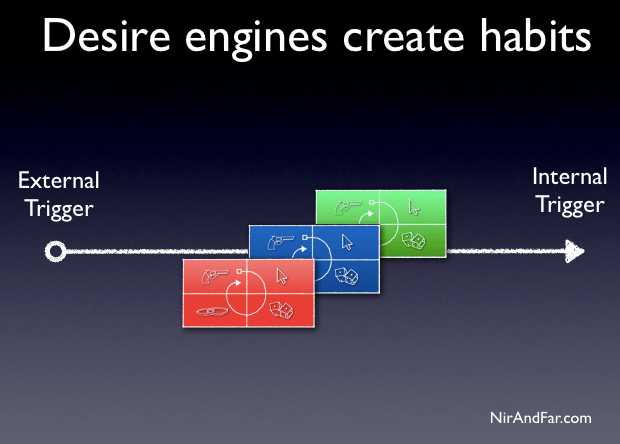
via lukew.com
via slideshare.net

via dubberly.com

- Rather than using conventional feedback loops, companies today are employing a new, stronger habit-forming mechanism to hook users—the desire engine.
- At the heart of the desire engine is a variable schedule of rewards: a powerful hack that focuses attention, provides pleasure, and infatuates the mind.
- Our search for variable rewards is about an endless desire for three types of rewards: those of the tribe, the hunt and the self.
In advertising, marketers reinforce a behavior by linking to the promise of reward. “Use our product,” they claim, “and you’ll get laid”; it’s the gist of many product pitches from soap to hamburgers.
http://www.nirandfar.com/2012/03/want-to-hook-your-users-drive-them-crazy.html#

via codinghorror.com
<blockquote class='posterous_long_quote'><b>Above all else, you should strive to make pagination irrelevant because the user never has to look at more than a few items to find what they need</b>. That's why I suspect Google hasn't done much with this technique in their core search result pages; if they aren't providing great results on page 1, it doesn't really <i>matter</i> what kind of pagination they use because they're not going to be in business much longer. Take that lesson to heart: you should be worried most of all about presenting a <i>relevant</i> list of items to the user in a sensible order. Once you've got that licked, then and only then should you think about your pagination scheme.</blockquote>
via codinghorror.com



